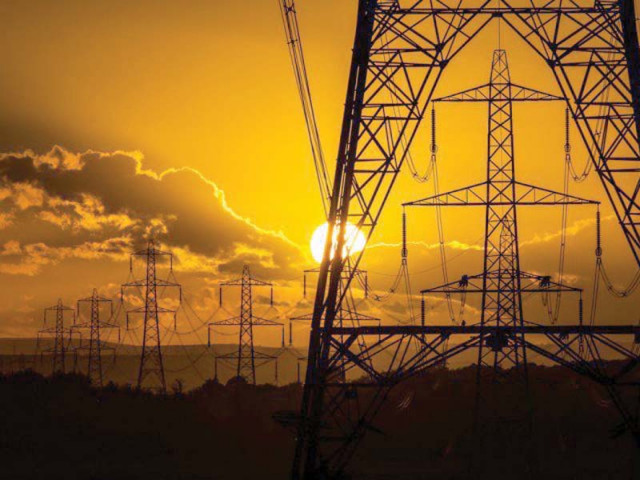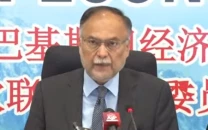How toothless have Pakistani regulatory bodies become
Key ones have been handed over their respective ministries, government takes charge

The move to hand over five regulatory bodies to their line ministries is rooted in the rulers’ habit of not accepting a refusal once an order is passed, irrespective the direction was lawful or not. This is also the reason the country’s institutions could not be developed despite having a decade of democracy; from 1988 to 1999 and from 2008 onwards.
Five regulatory bodies stripped of autonomy
The bickering had been going on for the last many months and things reached a boiling point when the National Electric Power Regulatory Authority (Nepra) refused to accommodate the government on two key projects of China-Pakistan Economic Corridor. The regulator did not want to punish the electricity consumers to appease Chinese investors and the rulers.
However, finally on Monday the government issued a notification. It stated that Nepra was now under the control of the Water and Power Division, Oil and Gas Regulatory Authority (Ogra) under the Petroleum and Natural Resources Division, Pakistan Telecommunication Authority (PTA) and Frequency Allocation Board (FAB) under the Information Technology and Telecom Division and the Public Procurement Regulatory Authority (PPRA) under the Finance Division.
These regulatory bodies were now under the Cabinet Division by various governments in the past to ensure that they enjoyed independence in decision-making instead of being subservient to the ministries for routine administrative issues like approval of leave, visits abroad and appointments.
The World Bank and International Monetary Fund had put numerous conditions under various policy loans to make the regulators independent from the influence of the government. After availing these loans, Pakistan has now reversed these reforms, which has also created uneasiness among these international financial institutions.
Regulatory bodies: Sindh opposes oversight transfer to ministries
The move has also raised apprehensions about promotion of rent-seeking culture. Now the government can easily exploit these regulators. The regulators were playing the role of firewall against the rent-seeking culture.
There have been instances where Nepra and Ogra stood against the government’s pressure and did not pass on unnecessary burden to the consumers. Nepra was also resisting passing on the cost of inefficiency of the power distribution companies to the electricity consumers.
The past three and half years’ experience suggests that the PML-N has been least bothered about the interests of the consumers and took many decisions contrary to their interests.
The government insists that changing the control of the regulators from Cabinet Division to their line ministries would not affect the independence of the regulators.
However, for the regulator, this is a clear case of conflict of interest. Ogra determines the pricing of the gas while the government owns the gas utility companies. The Pakistan State Oil is under the control of Ministry of Petroleum and Ogra determines the price of petroleum products.
So far, the Cabinet Division used to appoint Ogra Chairman through a competitive process. Through the Cabinet Division, the prime minister used to approve ex-Pakistan leave of executive directors and above grade officers of these regulatory bodies. Now this function has been transferred to the Ministry of Petroleum and Natural Resources.
Even the ex-Pakistan leave application of chairman Ogra or Nepra can be used as leverage by the Minister for Petroleum and Minister for Water and Power, said a former Ogra chairman.
Although the prime minister is empowered to amend the Rules of Business 1973, after the 18th amendment in the Constitution the federal government alone cannot make a decision about the fate of these regulators.
Nawaz-led govt yet to fulfil promise of wholesale energy market
Because of the same reason, the government had initially put the subject of transfer of administrative control of the regulators on the agenda of the Dec 16 meeting of the Council of Common Interests (CCI). However, after the Khyber-Pakhtunkhwa and Sindh chief ministers opposed it, the federal government withdrew it from the CCI agenda.
Attorney General of Pakistan Ashtar Ausaf Ali insisted that giving administrative control of five key regulatory bodies was not a policy decision as it was just change in rules of business for which the CCI was not the forum.
In a story published in The Express Tribune, Ausaf had argued that when it was decided to place these regulators under the Cabinet Division even then the CCI was not the decision-maker as it is a normal government business.
There is an inherent flaw in his argument, as the 18th amendment in the Constitution was introduced in 2010 while these regulators were placed under the Cabinet Division in 1990s and early 2000.
However, now the question is who will protect the poor consumer from the government’s rent seeking? Nepra has so far resisted increasing the line losses limit of the power distribution companies beyond a permissible threshold. Will it still resist the pressure from the Finance Ministry and Ministry of Water and Power?
The Chinese investors of Lahore-Mitiari power transmission line were seeking guaranteed load for laying 660KV Direct Current High Voltage line to transport 4,000MW electricity. Will Nepra allow giving this comfort?
Will the tariff of a 1320MW coal-based power plant in Sindh be determined on the whims of a Gulf country investor or on the merit of the case?
The answers to these questions would take us to the background of the government’s ‘naïve move’.
The writer is a staff correspondent
Published in The Express Tribune, December 26th, 2016.
Like Business on Facebook, follow @TribuneBiz on Twitter to stay informed and join in the conversation.



















COMMENTS
Comments are moderated and generally will be posted if they are on-topic and not abusive.
For more information, please see our Comments FAQ